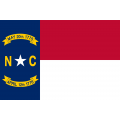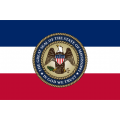According to the Bureau of Labor Statistics, South Carolina is expected to face a 24% nursing staff shortage over the next few years. Charleston, one of the largest cities in South Carolina, will be particularly hard hit by this nursing shortage. Charleston is home to approximately 20% of the state’s nurses, with major local employers like the Department of Veterans Affairs and Trident Medical Center. The promising job market makes this the ideal time for aspiring nurses to launch their careers. We outline below the three primary nursing roles.
Latest articles
A master of science in nursing (MSN) program offers registered nurses (RNs) the opportunity to further their careers in specialized fields like nursing administration, nursing education, and family practice nursing. The master’s degree program typically requires two to three years of full-time study. It builds upon the knowledge and skills a registered nurse has gained through baccalaureate education and the workplace.
In the coming years, nurses will shoulder the healthcare burden of caring for an aging population and keeping pace with rapid technological advancements. While a two-year associate’s degree is sufficient for most entry-level registered nurse (RN) positions, there is a growing employer preference for RNs prepared at the baccalaureate level. A bachelor of science in nursing (BSN) opens opportunities for career advancement and higher salary.
An associate’s degree in nursing (ADN) is the most common method for entering the nursing profession. According to the Health Resources and Services Administration, over 45% of all nurses in the U.S. initially obtained an associate’s degree. The ADN programs in South Carolina are designed to prepare students with the skills and knowledge to become a registered nurse (RN).
Benefits of the ADN pathway
A licensed practical nurse (LPN) provides basic patient care and can perform all of the duties within the scope of a certified nursing assistant. However, an LPN also fills a number of more advanced healthcare roles. For example, LPNs often insert and remove catheters, dress wounds, insert feeding tubes, administer medicine, give injections, and start intravenous drips. The exact responsibilities of an LPN vary somewhat by state and training.
Certification
Private colleges and universities do not receive direct funding from local governments. As a result, they tend to charge higher tuition fees than their public counterparts. However, many private institutions have a prestigious academic history, and most offer small class sizes that provide students individual attention from their instructors.
Public colleges and universities are institutions of higher learning that receive significant funding from local governments. For this reason, public schools typically have lower tuition fees than their private counterparts, especially for state or county residents.
A private college or university is an independent school which does not receive direct government subsidies. Private institutions thus usually charge their students higher tuition than their public counterparts. However, with this higher cost come several benefits.
Private school benefits
Several distinct nursing career options are available in North Carolina. Each nursing role carries a unique set of educational training and licensure requirements.
Registered nurse
Many potential students worry about the all-in cost of nursing education. To demystify the process, we explain below the major costs required to pursue a nursing degree or certificate, as well as the potential return on this investment.
Tuition










